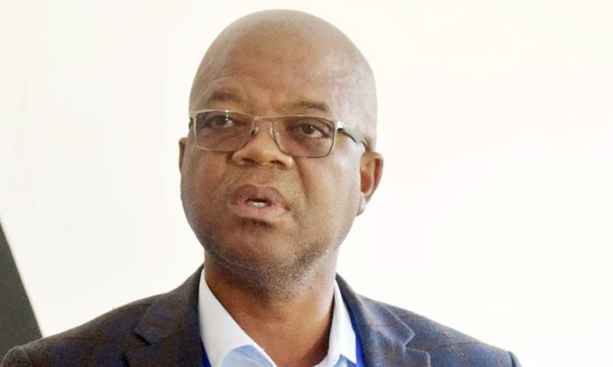The Umbrella For Democratic Change (UDC) notes and celebrates May 3 which was declared World Press Freedom Day in 1993 by the United Nations. This day marks the anniversary of the 1991 Windhoek Declaration which brought together a number of African Media practitioners who were concerned about the state of the media and interested in the promotion of media freedom.
The Windhoek Declaration calls for free, independent and pluralistic media throughout the world. It acknowledges and asserts free press as essential to democracy and fundamental human rights. This day raises awareness of freedom of the press and reminds governments of their duty to uphold the right to freedom of expression as enshrined under Article 19 of the Universal Declaration of Human Rights. As Media Institute of Southern Africa (MISA) put it, this is the day to look and reflect at how society has treated the Media and how governments have either promoted or betrayed the media. The theme for this year is, “Press Freedom and Disinformation During the COVID-19”.
The ruling Botswana Democratic Party (BDP) has over the years not hesitated to use its numerical strength in Parliament to pass pieces of legislation that restricts media freedom. Amongst these battery of them we have the National Security Act, The DCEC Act, The Media Practitioners Act. The list is endless. These Acts not only violate the Botswana Constitution. They also violate international principles set out in the African Commission Declaration. Section 12 (1) of the Botswana Constitution provides that “except with his own consent, no person shall be hindered in the enjoyment of his freedom of expression… and freedom from interference with his correspondence”.
Principle IX (2) of the African Commission Declaration of Principles of Freedom of Expression says that “any regulatory body established to hear complaints about media content, including media councils, shall be protected against political, economic or any other undue interference. Its powers shall be administrative in nature and it shall not seek to usurp the role of the courts.” Principle IX (3) of the same Declaration states that “effective self-regulation is the best system for promoting high standards in the media”. Contrary to its claims that it is committed to press freedom, the Masisi administration has for the over two years that it has been in place failed to repeal the statutes that inhibit press freedom. Up to now it has failed to introduce the Freedom of Information Act. We will continue to push for its introduction to make it easier to access information from state and quasi state institutions. Like we have said before, the BDP has no reform potential. All it wants is to put its palm on the mouths of the people it governs and holding pens with them as they write.
We have of late observed a situation whereby some journalists allow themselves to be used by politicians to pursue their agenda. For journalists to be used by politicians to influence voting patterns in their favour is wrong. It compromises fair and balanced coverage. We also repeat our calls to have the state media transformed into a public media that will operate under a Board which will be free from political interference. The continued bias and lack of adherence to fair and balanced reporting compromises the strength of the fourth leg of democracy.
This day presents time for the media to reflect and assess if it is upholding ethical standards. The rate of successful litigation against the media is clear testimony that the media fraternity has challenges in upholding ethical journalism standards and practices. In most cases this could have been avoided if all sections of the media were professional. We applaud those who continue to uphold fair, objective and balanced reporting. As a proponent of self-regulation, we are worried by the collapse of media oversight structures. The nation has been left at the mercy of some journalists who would even boast that one cannot win against the media. We need a probing media that will watch over the other three legs of government. A media that takes its oversight role seriously and shuns brown envelope journalism.
Freedom House which is an organisation that has been at the fore-front of monitoring threats to media independence since 1980 states that ” a free press plays a key role in sustaining and monitoring a healthy democracy, as well as in contributing to greater accountability, good governance, and economic development”. While acknowledging the government’s right of reply, its response to an article on diminishing freedom of speech and freedom by Ink Centre for investigative journalism, was too harsh, intolerant and demining. Hence confirming what was raised in the article.
It is therefore difficult for the media to operate in this type of an environment. What has even made the situation worse is the introduction of the state of public emergency during which we have seen the suspension of the workers’ right to strike. It is also during this period that we have seen the permanent secretary and his deputy at ministry of health being dismissed. There has also been an arrest of the publicity secretary of the opposition Botswana Patriotic Front (BPF) and two bloggers at a time when COVID-19 has been found to be also spreading through detention facilities. These type of arrests are meant to serve as an example to silence the nation in the face of rampant abuse of public resources. We still remain opposed to the introduction of the State of emergency and call for its immediate withdrawal. The UDC believes the introduction of the State of Public Emergency was unwarranted and was used to promote secrecy and curtail freedom of expression.
We conclude by emphasising our strong support for media freedom, responsible journalism and freedom of expression.
Press Release distributed by UDC Communications. For any inquiries please contact Moeti Mohwasa +26 77 302 1911
